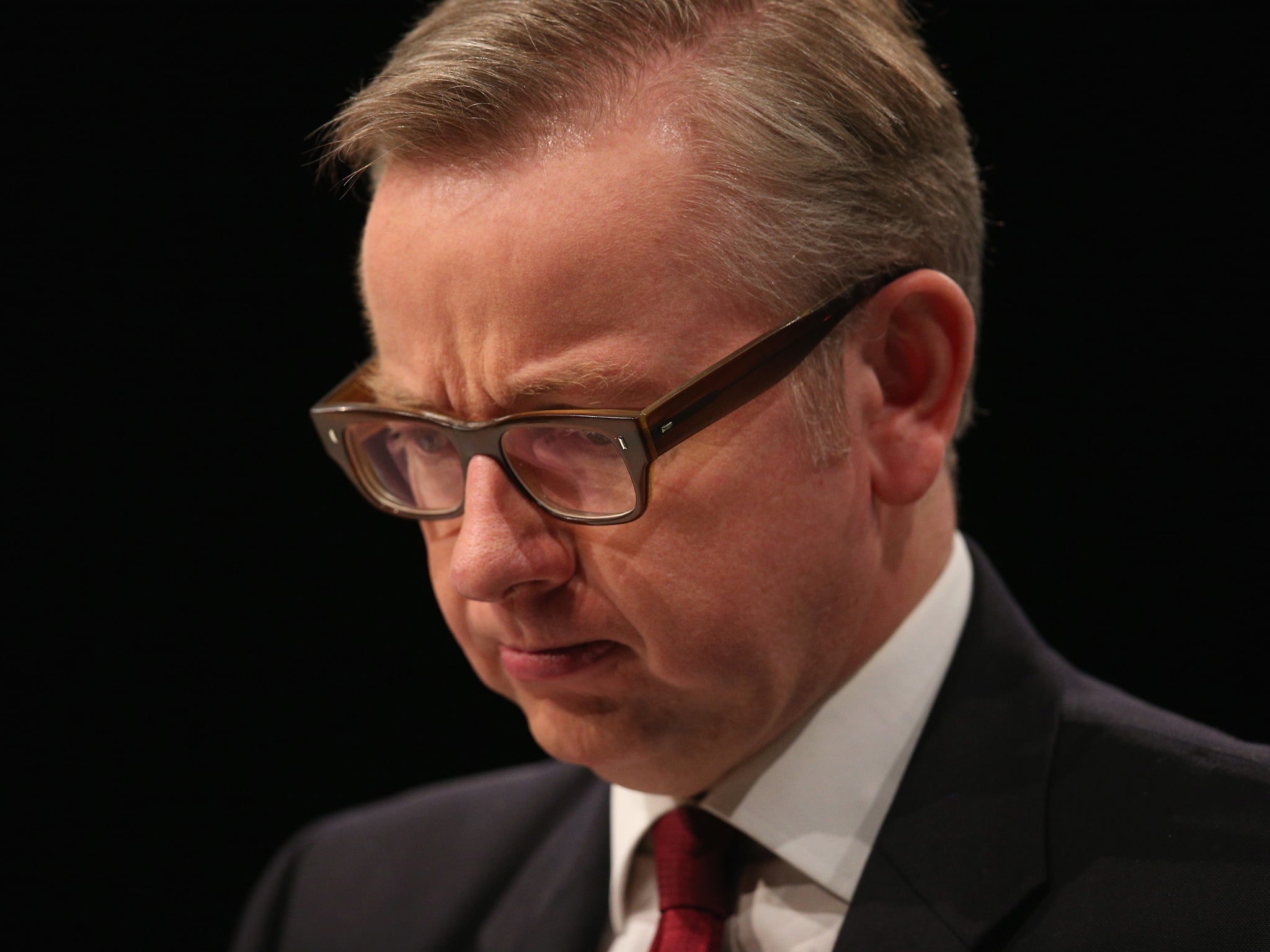Courts, prisons and human rights: To say Michael Gove has a tough job is putting it mildly
His in-tray contains subjects daunting even for a minister famed for his reforming zeal

Your support helps us to tell the story
From reproductive rights to climate change to Big Tech, The Independent is on the ground when the story is developing. Whether it's investigating the financials of Elon Musk's pro-Trump PAC or producing our latest documentary, 'The A Word', which shines a light on the American women fighting for reproductive rights, we know how important it is to parse out the facts from the messaging.
At such a critical moment in US history, we need reporters on the ground. Your donation allows us to keep sending journalists to speak to both sides of the story.
The Independent is trusted by Americans across the entire political spectrum. And unlike many other quality news outlets, we choose not to lock Americans out of our reporting and analysis with paywalls. We believe quality journalism should be available to everyone, paid for by those who can afford it.
Your support makes all the difference.It is little wonder that Michael Gove has kept an uncharacteristic low profile since his unexpected appointment last month as Justice Secretary.
His in-tray contains three subjects daunting even for a minister famed for his reforming zeal: courts, prisons and human rights.
He finally broke his silence with a promise to shake up a “creaking and dysfunctional” justice system by using new technology to tackle delays and bureaucracy, and minimise the traumatic experience of giving evidence.
Mr Gove has already started work on the Tory manifesto commitment to scrap the Human Rights Act and replace it with a British Bill of Rights, but is unlikely to produce detailed proposals on this most complex of policy areas for many months.
The challenge he faces over the state of prisons is more immediate, with jails in England and Wales holding a near-record 85,743 inmates and with increasing levels of suicide, self-harm, attacks on staff and sexual assaults.
The prospect of major disturbances during the summer is an ever-present worry for prison governors.
A scathing inspectors’ report this week into Pentonville prison in north London – an institution characterised by violence, overcrowding and staff sickness – underlined the demands on a system struggling to cope.
Mr Gove has paid tribute to his predecessor, Chris Grayling, but allies say he is determined to bring a new approach to the problems besetting prisons.
He is keen to boost rehabilitation programmes, particularly initiatives designed to wean inmates off drugs, to provide more psychological help to the soaring numbers of paedophiles behind bars, and to tackle levels of youth offending.
One result of his arrival at the ministry is likely to be the cancellation of Mr Grayling’s plan to build a “secure college” for 320 young offenders – or a modern-day borstal, to its detractors. Another will be an initiative, drawing on his time as the Education Secretary, to intervene with troubled young people before they fall foul of the law.
A third of boys and 61 per cent of girls in young offender institutions have spent time in local authority care – and many were removed from their families because they had been abused or ill-treated. Breaking the link between having the grimmest of starts in life and drifting into crime is a crucial, long-term challenge for society.
On 25 June. the Prison Reform Trust began a nine-month investigation into the problem, chaired by Lord Laming, who previously led the Victoria Climbié inquiry.
The trust’s director, Juliet Lyon, says: “There is a depressing route from care to custody which can, and must, be stopped.”
Mr Gove, who has praised Lord Laming as “inspirational”, demonstrated in the last government that he is very receptive to early intervention. He pushed through reforms which made it easier for children from troubled homes to be fostered and adopted rather than spend their formative years in care.
The problem for the new Justice Secretary is that it could be years before this approach begins to ease the strain on an overstretched and underfunded prison system.
With pressure from the Chancellor, George Osborne, to identify further savings from his ministry’s budget, one obvious answer would be to urge courts to divert more minor offenders from custody. It would be politically tricky, but a similar approach has paid dividends in Republican-run Texas, where prisons are closing and crime is falling. Emulating this achievement on this side of the Atlantic would seal Mr Gove’s reforming credentials.
Join our commenting forum
Join thought-provoking conversations, follow other Independent readers and see their replies
Comments